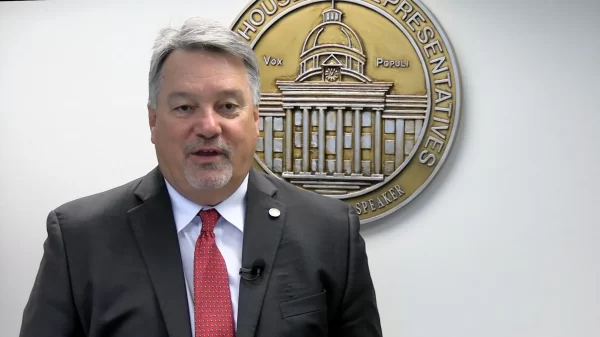By Brandon Moseley
Alabama Political Reporter
For five years the tag team of Speaker of the House Mike Hubbard (R-Auburn) and Senate President Pro Tem Del Marsh (R-Anniston) have had their way on bill after bill after bill. Whether it was the School Flexibility Act morphing into the Accountability Act, charter schools, raiding the Alabama Trust Fund, raising taxes for the General Fund, Medicare reform, ethics reforms, eliminating most of the limits on corporate donations, etc. anytime the two legislative leaders wanted to move legislation it moved and if they ran over some members of their own caucus to do it, well that was just collateral damage. 2016 was an entirely different experience.
Senator Del Marsh discussed tenure reform at length before the session with anyone who would listen. The Alabama Political Reporter saw three different versions of that complicated bill which would have dramatically changed tenure and how it is awarded in Alabama schools. Marsh’s efforts to pass the RAISE Act which gave the teachers a pay raise in exchange for them sacrificing the tenure system was dead on arrival. The teachers got a four percent raise from the legislature without any conditions. Marsh’s scaled back compromise final tenure reform measure barely got out of the Senate’s Education policy committee where it faced enormous bipartisan opposition. Marsh punished Senator Paul Bussman (R-Cullman) for voting against him by stripping Bussman of his committee chairmanship in the Senate; but tenure reform never got to the Senate floor.
The powerful Business Council of Alabama and the state’s roadbuilders demanded more money for roadwork from the legislature. The House and Senate transportation committees toured the state in a series of public hearings where BCA members and local officials would tell legislators that they needed to raise fuel taxes to fund more road construction projects. Rules Committee Chairman Mac McCutcheon (R-Capshaw) carried the gas tax bill which raised fuel prices six cents a gallon, taxed alternative fuel vehicles, and had a series of automatic future tax increases when other southeastern states raised their fuel taxes. The venerable Senator Gerald Dial (R-Lineville) was going to carry the measure in the Senate. The bill struggled to get out of committee; but there was so little support in either body, that the House leadership never bothered to bring the measure to the House floor.
In a desperate effort to find more money for roads, the leadership of both Houses made the decision to raid the BP oil spill settlement money. The legislature had raided the Alabama trust fund in 2008 and again in 2012. Alabama Governor Robert Bentley (R) had promised voters that if they approved the 2012 referendum to let State government raid the fund that the State would pay it back. All of the oil spill money was supposed to go to pay off the $620 million in debt. The coastal delegation thought that they should get the money instead so launched a furious effort to reallocate the funds towards road work…..why roadwork would help the environment was never really explained well. The leadership in both Houses agreed and both Houses passed their own version of the BP settlement raid. The Senate version raided the money and spent it all on roads. The House version raided the money, paid down more debt than the Senate version, and also took $55 million to deal with the troubled Alabama Medicaid program which is receiving $85 million less than what the program administrators claim they need (it is level funded at 2016 levels). The version that passed the Senate was defeated in the House with just three minutes left in the session 36 to 50. The version that the House passed on Thursday, April 28 went to the Senate where it was defeated in committee over a spat on the distribution of money going to the coast. It never came to the floor of the Senate.
Gov. Bentley wanted to borrow $800 million in bonds for a massive public works projects to build four massive new prisons. Details of the unbid contract were hid from the press, public, and most of the legislature. The leadership of both Houses supported the controversial legislation. Marsh still had enough influence to get the bill out of the Senate. The House though, narrowly passed a much altered bill on Thursday, April 28. The Senate refused to pass the House version of the bill. Eventually the legislation went to a conference committee. The committee downsized the bill to $550 million. The Senate passed the measure before 11:00 p.m. Speaker Hubbard never brought the unpopular conference committee version to the floor of the House because the leadership never had the votes to kill a Democratic filibuster.
Hubbard and Marah both supported a controversial plan to create a longitudinal data office run by the State Department of Labor. House Bill 125 was sponsored by State Representative Terri Collins (R-Decatur) and strongly backed by BCA. The new state longitudinal data system would have tracked Alabama school students as they progress through the schools, on to college, and into the work force. Marsh and proponents argued that this is necessary for workforce developments. Opponents argued that this is government spying on kids. The bill would apply to all public school students and workers leaving public education and potentially through their entire lives. A group of conservative State Senators defied Sen. Marsh who had made the bill a priority and blocked the measure by threatening to filibuster. The bill died on the last day of the session.




















































